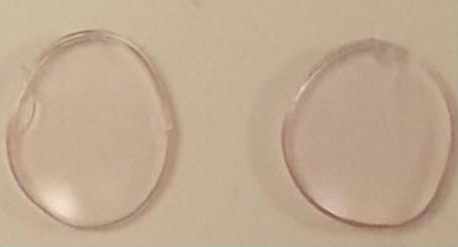
Researchers in the United Arab Emirates have developed contact lenses that can help to correct color blindness. Containing gold nanoparticles, the lenses help to increase red-green contrast in wearers while also functioning as corrective lenses. The particles give the lenses a rose tint, which will hopefully result in wearers having a more positive experience when viewing the world, rather than the misplaced optimism typically associated with such tinted eye wear.
Red-green color blindness can pose a variety of challenges, such as having difficulty knowing when to stop at traffic junctions in response to a red light. Researchers have been developing ways to improve red-green contrast for those who experience such color blindness.
One solution is to use red-tinted glasses. However, such glasses are bulky, and not everyone likes wearing glasses. To address this, these researchers have been developing contact lenses that can achieve similar results. Initially, they tested lenses that had been dyed pink, but noticed that they leeched dye, meaning that they were unstable and potentially unsafe.
The team then turned to gold nanocomposites, which have been used for centuries to create “cranberry glass,” which has a pink hue. The researchers mixed gold nanoparticles into a hydrogel and used this to fabricate the lenses. The pink-tinted constructs filtered light between 520–580 nm, which is where the wavelengths of red and green light coincide.

So far, the researchers have tested the effectiveness and safety of the lenses in the lab. They found that the modified lenses were not toxic in cells grown in vitro and had similar water retention properties as commercial lenses, suggesting that they are safe for use.
They compared the gold nanoparticle-modified lenses to two types of tinted glasses that are available commercially for those with color blindness and found that the lenses were more highly selective in blocking certain wavelengths than the glasses. The next steps will involve human trials to see if the lenses are comfortable and can successfully help with red-green contrast in those with color blindness.
Study in ACS Nano: Gold Nanocomposite Contact Lenses for Color Blindness Management
Via: ACS
